Sunflower seeds are a popular snack food that can also be used as an ingredient in various recipes. Whether you are a retailer or a business in the food industry, buying sunflower seeds in bulk can help you save costs and ensure a steady supply of this nutritious product. In this article, we will explore the price range, specifications, and wholesale options for purchasing sunflower seeds in large quantities. 1. Pricing Factors: The price of sunflower seeds in bulk is influenced by several factors, including the type of seed, quality, packaging, and supplier. In general, purchasing in larger quantities will lead to lower per-unit costs. Here are some key pricing factors to consider: a. Seed Type: There are different types of sunflower seeds available for purchase, such as in-shell, shelled, salted, roasted, or flavored. Each variety may have a different price point based on its processing requirements and market demand. b. Quality: The quality of sunflower seeds can vary based on factors like size, freshness, and moisture content. Premium-grade seeds usually command a higher price due to their superior taste and texture. c. Packaging: Consider whether you want sunflower seeds in bulk bags, vacuum-sealed packs, or other types of packaging. The cost of packaging materials and methods can influence the overall price. d. Supplier: Prices may vary between different suppliers based on their sourcing capabilities, production methods, and business overheads. It is essential to compare prices and evaluate the reputation and reliability of potential suppliers. 2. Specifications: When purchasing sunflower seeds in bulk, it is crucial to understand the specifications to ensure they meet your specific requirements. Here are some key specifications to consider: a. Size: Sunflower seeds can vary in size, typically classified as small, medium, or large. The size of the seeds may influence their taste, texture, and suitability for specific applications. b. Moisture Content: Sunflower seeds should have an optimal moisture content to maintain freshness and prevent spoilage. Lower moisture content is generally preferred as it extends the shelf life of the seeds. c. Taste and Texture: The taste and texture of sunflower seeds can vary based on factors such as roasting techniques, flavoring, and seasoning. Consider the flavor profile that aligns with your target market or intended use. d. Shelf Life: Sunflower seeds should have a reasonable shelf life to ensure they remain fresh and safe for consumption. Suppliers should provide information about the recommended shelf life and storage conditions. 3. Wholesale Options: There are various avenues for purchasing sunflower seeds in bulk at wholesale prices. Here are some common options to explore: a. Direct from Farms or Growers: Connecting directly with sunflower seed farmers or growers can offer competitive prices, especially if purchasing in large quantities. This option may require building relationships and negotiating contracts. b. Wholesale Suppliers: Numerous wholesale suppliers specialize in providing sunflower seeds in bulk. These suppliers often offer a wide range of options, including different seed varieties, packaging choices, and delivery options. c. Online Marketplaces: Online marketplaces such as Alibaba, Tradekey, and Global Sources provide platforms for connecting with suppliers from around the world. These platforms facilitate bulk ordering and often offer competitive pricing due to the high number of sellers. d. Trade Shows: Attending trade shows focused on the food industry or agricultural products can provide opportunities to establish contacts with sunflower seed suppliers. These events offer a chance to sample products, negotiate bulk prices, and discuss specifications directly with suppliers. Conclusion: Purchasing sunflower seeds in bulk can be a cost-effective solution for businesses in the food industry. Understanding the pricing factors, specifications, and wholesale options available is crucial to make an informed buying decision. Whether you choose to source directly from farmers, wholesale suppliers, online marketplaces, or trade shows, conducting thorough research and due diligence will assist you in finding the best deal for your specific needs.I. Benefits of Buying Sunflower Seeds in Bulk: Purchasing sunflower seeds in bulk offers several advantages for businesses. Let’s explore some of the key benefits: 1. Cost Savings: Buying sunflower seeds in bulk allows businesses to benefit from economies of scale, resulting in lower per-unit costs. This can lead to significant cost savings, especially for businesses that require a steady supply of sunflower seeds.
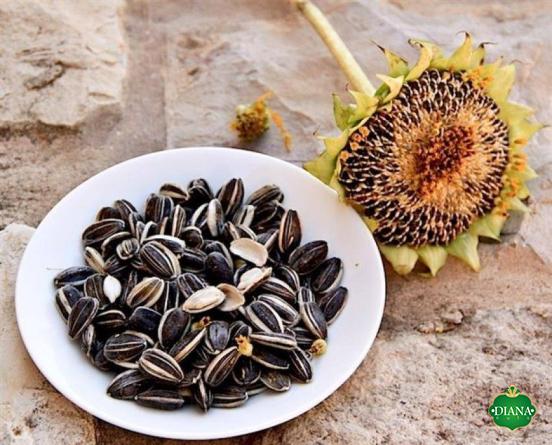
nut
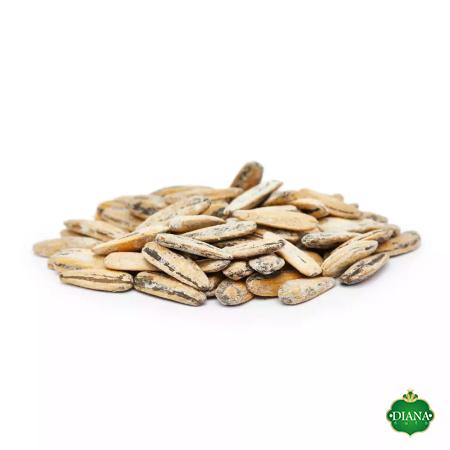 2. Consistent Supply: Having a bulk supply of sunflower seeds ensures that businesses can meet customer demand consistently. It eliminates the need for frequent reordering and reduces the risk of running out of stock, particularly during peak seasons or high-demand periods. 3. Customization Options: Purchasing sunflower seeds in bulk provides businesses with the opportunity to customize the product based on their unique requirements. They can choose the type of seed, size, and packaging that aligns with their brand and target market. 4. Flexibility: With a bulk supply of sunflower seeds, businesses have the flexibility to use the product in various ways. Whether it’s repackaging for retail, using as an ingredient in food products, or incorporating into snack mixes, having a large quantity of seeds opens up possibilities for diversifying product offerings. 5. Long Shelf Life: Sunflower seeds have a relatively long shelf life when stored properly, making bulk purchase a viable option. This reduces the risk of spoilage and wastage and ensures that businesses can maintain product freshness over an extended period. II. Price Range for Sunflower Seeds Bulk Purchase: The price range for sunflower seeds in bulk can vary depending on several factors. As mentioned earlier, these factors include the type of seed, quality, packaging, and supplier. Here is a breakdown of the typical price range for bulk purchases: 1. In-Shell Sunflower Seeds: In-shell sunflower seeds are commonly sold in bulk as a snack product. The price range for in-shell sunflower seeds is typically between $1.50 and $2.50 per pound. Specialty varieties or flavored in-shell seeds may be priced slightly higher. 2. Shelled Sunflower Seeds: Shelled sunflower seeds, also known as kernel or hulled seeds, are popular in baking, cooking, and as toppings. The price range for shelled sunflower seeds is generally higher than in-shell seeds, ranging from $2.50 to $4 per pound. 3. Roasted or Flavored Sunflower Seeds: Sunflower seeds that are roasted or flavored attract a premium price due to the additional processing involved. Prices for roasted or flavored sunflower seeds can range from $3 to $5 per pound or more, depending on the specific processing methods and flavorings used. 4. Organic Sunflower Seeds: Organic sunflower seeds, grown without the use of synthetic fertilizers or pesticides, typically command higher prices. The price range for organic sunflower seeds in bulk can vary but generally falls between $4 and $6 per pound. It is important to note that these price ranges are approximate and can vary based on market conditions, geographic location, and other factors. Comparing prices from different suppliers and considering the quality of the product is crucial to getting the best value for your investment. III. Specifications to Consider When Buying Sunflower Seeds: When purchasing sunflower seeds in bulk, businesses should consider several specifications to ensure they meet their requirements. Here are some key specifications to take into account: 1. Size: Sunflower seeds come in different sizes, including small, medium, and large varieties. The size of the seeds can affect their taste, texture, and suitability for different applications. For example, larger seeds may be more suitable for snacking or baking, while smaller seeds may be preferred for sprinkling on top of dishes or incorporating into food products. 2. Moisture Content: The moisture content of sunflower seeds is a crucial specification to consider. Seeds with a higher moisture content are more prone to spoilage and may have a shorter shelf life. It is important to purchase sunflower seeds with an optimal moisture content that ensures freshness and a prolonged shelf life. 3. Taste and Texture: The taste and texture of sunflower seeds can vary based on factors such as roasting techniques and flavorings. When purchasing in bulk, businesses should consider whether they prefer a specific taste profile, such as salted, unsalted, or flavored options. 4. Packaging Options: Sunflower seeds can be packaged in various ways, including bulk bags, vacuum-sealed packs, or even customized packaging with branding. It is essential to consider the packaging options that align with your business needs and customer preferences. 5. Shelf Life: Sunflower seeds should have a reasonable shelf life to ensure that businesses can store and sell them without compromising quality. Most sunflower seeds have a shelf life of around 6 to 9 months, but this can vary based on factors such as processing methods and storage conditions. Suppliers should provide information on the recommended shelf life of their products. By paying attention to these specifications, businesses can ensure they are procuring sunflower seeds that meet their quality standards and align with their specific usage and target market requirements.
2. Consistent Supply: Having a bulk supply of sunflower seeds ensures that businesses can meet customer demand consistently. It eliminates the need for frequent reordering and reduces the risk of running out of stock, particularly during peak seasons or high-demand periods. 3. Customization Options: Purchasing sunflower seeds in bulk provides businesses with the opportunity to customize the product based on their unique requirements. They can choose the type of seed, size, and packaging that aligns with their brand and target market. 4. Flexibility: With a bulk supply of sunflower seeds, businesses have the flexibility to use the product in various ways. Whether it’s repackaging for retail, using as an ingredient in food products, or incorporating into snack mixes, having a large quantity of seeds opens up possibilities for diversifying product offerings. 5. Long Shelf Life: Sunflower seeds have a relatively long shelf life when stored properly, making bulk purchase a viable option. This reduces the risk of spoilage and wastage and ensures that businesses can maintain product freshness over an extended period. II. Price Range for Sunflower Seeds Bulk Purchase: The price range for sunflower seeds in bulk can vary depending on several factors. As mentioned earlier, these factors include the type of seed, quality, packaging, and supplier. Here is a breakdown of the typical price range for bulk purchases: 1. In-Shell Sunflower Seeds: In-shell sunflower seeds are commonly sold in bulk as a snack product. The price range for in-shell sunflower seeds is typically between $1.50 and $2.50 per pound. Specialty varieties or flavored in-shell seeds may be priced slightly higher. 2. Shelled Sunflower Seeds: Shelled sunflower seeds, also known as kernel or hulled seeds, are popular in baking, cooking, and as toppings. The price range for shelled sunflower seeds is generally higher than in-shell seeds, ranging from $2.50 to $4 per pound. 3. Roasted or Flavored Sunflower Seeds: Sunflower seeds that are roasted or flavored attract a premium price due to the additional processing involved. Prices for roasted or flavored sunflower seeds can range from $3 to $5 per pound or more, depending on the specific processing methods and flavorings used. 4. Organic Sunflower Seeds: Organic sunflower seeds, grown without the use of synthetic fertilizers or pesticides, typically command higher prices. The price range for organic sunflower seeds in bulk can vary but generally falls between $4 and $6 per pound. It is important to note that these price ranges are approximate and can vary based on market conditions, geographic location, and other factors. Comparing prices from different suppliers and considering the quality of the product is crucial to getting the best value for your investment. III. Specifications to Consider When Buying Sunflower Seeds: When purchasing sunflower seeds in bulk, businesses should consider several specifications to ensure they meet their requirements. Here are some key specifications to take into account: 1. Size: Sunflower seeds come in different sizes, including small, medium, and large varieties. The size of the seeds can affect their taste, texture, and suitability for different applications. For example, larger seeds may be more suitable for snacking or baking, while smaller seeds may be preferred for sprinkling on top of dishes or incorporating into food products. 2. Moisture Content: The moisture content of sunflower seeds is a crucial specification to consider. Seeds with a higher moisture content are more prone to spoilage and may have a shorter shelf life. It is important to purchase sunflower seeds with an optimal moisture content that ensures freshness and a prolonged shelf life. 3. Taste and Texture: The taste and texture of sunflower seeds can vary based on factors such as roasting techniques and flavorings. When purchasing in bulk, businesses should consider whether they prefer a specific taste profile, such as salted, unsalted, or flavored options. 4. Packaging Options: Sunflower seeds can be packaged in various ways, including bulk bags, vacuum-sealed packs, or even customized packaging with branding. It is essential to consider the packaging options that align with your business needs and customer preferences. 5. Shelf Life: Sunflower seeds should have a reasonable shelf life to ensure that businesses can store and sell them without compromising quality. Most sunflower seeds have a shelf life of around 6 to 9 months, but this can vary based on factors such as processing methods and storage conditions. Suppliers should provide information on the recommended shelf life of their products. By paying attention to these specifications, businesses can ensure they are procuring sunflower seeds that meet their quality standards and align with their specific usage and target market requirements.
Specifications of nut
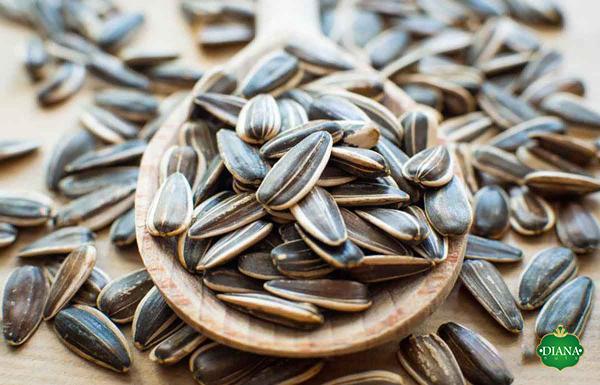 IV. Wholesale Options for Purchasing Sunflower Seeds: There are several wholesale options available for businesses looking to purchase sunflower seeds in bulk. Here are some common avenues to explore: 1. Direct from Farms or Growers: Connecting directly with sunflower seed farmers or growers can offer competitive prices and access to freshly harvested seeds. This approach requires building relationships, negotiating contracts, and ensuring reliable supply chains. It is often a preferred option for businesses focused on organic or specialty sunflower seeds. 2. Wholesale Suppliers: Numerous wholesale suppliers specialize in providing sunflower seeds in bulk quantities. These suppliers often offer a wide range of options, including different seed varieties, packaging choices, and delivery options. It is advisable to research and compare prices and quality before choosing a wholesale supplier. 3. Online Marketplaces: Online marketplaces such as Alibaba, Tradekey, and Global Sources provide platforms for connecting with suppliers from around the world. These platforms feature a wide range of suppliers, allowing businesses to compare prices, specifications, and customer reviews. Online marketplaces also facilitate communication and negotiation with potential suppliers. 4. Trade Shows: Trade shows focused on the food industry or agricultural products provide opportunities to establish contacts with sunflower seed suppliers. These events offer a chance to sample products, negotiate bulk prices, and discuss specifications directly with suppliers. Attending trade shows can help businesses find new suppliers or strengthen relationships with existing ones. When exploring wholesale options, it is important for businesses to consider factors such as supplier reputation, reliability, product quality, and delivery timelines. Doing proper research, requesting samples, and scrutinizing terms and conditions will ensure a successful partnership with the chosen supplier. V. Packaging and Storage Considerations: Proper packaging and storage play a crucial role in maintaining the quality and freshness of sunflower seeds purchased in bulk. Here are some packaging and storage considerations to keep in mind: 1. Bulk Bags: Bulk bags are a common packaging option for sunflower seeds. These bags should be made of high-quality, food-safe materials that protect the seeds from moisture, pests, and sunlight. They should be resealable to maintain freshness after opening. 2. Vacuum-Sealed Packs: Vacuum-sealed packs can offer an extended shelf life by removing air and reducing the chances of spoilage. This type of packaging is especially useful for businesses that require long-term storage or want to extend the freshness of sunflower seeds. 3. Customized Packaging: Some businesses may opt for customized packaging that aligns with their branding and marketing strategy. Customized packaging can help create a distinctive product identity and attract customers.
IV. Wholesale Options for Purchasing Sunflower Seeds: There are several wholesale options available for businesses looking to purchase sunflower seeds in bulk. Here are some common avenues to explore: 1. Direct from Farms or Growers: Connecting directly with sunflower seed farmers or growers can offer competitive prices and access to freshly harvested seeds. This approach requires building relationships, negotiating contracts, and ensuring reliable supply chains. It is often a preferred option for businesses focused on organic or specialty sunflower seeds. 2. Wholesale Suppliers: Numerous wholesale suppliers specialize in providing sunflower seeds in bulk quantities. These suppliers often offer a wide range of options, including different seed varieties, packaging choices, and delivery options. It is advisable to research and compare prices and quality before choosing a wholesale supplier. 3. Online Marketplaces: Online marketplaces such as Alibaba, Tradekey, and Global Sources provide platforms for connecting with suppliers from around the world. These platforms feature a wide range of suppliers, allowing businesses to compare prices, specifications, and customer reviews. Online marketplaces also facilitate communication and negotiation with potential suppliers. 4. Trade Shows: Trade shows focused on the food industry or agricultural products provide opportunities to establish contacts with sunflower seed suppliers. These events offer a chance to sample products, negotiate bulk prices, and discuss specifications directly with suppliers. Attending trade shows can help businesses find new suppliers or strengthen relationships with existing ones. When exploring wholesale options, it is important for businesses to consider factors such as supplier reputation, reliability, product quality, and delivery timelines. Doing proper research, requesting samples, and scrutinizing terms and conditions will ensure a successful partnership with the chosen supplier. V. Packaging and Storage Considerations: Proper packaging and storage play a crucial role in maintaining the quality and freshness of sunflower seeds purchased in bulk. Here are some packaging and storage considerations to keep in mind: 1. Bulk Bags: Bulk bags are a common packaging option for sunflower seeds. These bags should be made of high-quality, food-safe materials that protect the seeds from moisture, pests, and sunlight. They should be resealable to maintain freshness after opening. 2. Vacuum-Sealed Packs: Vacuum-sealed packs can offer an extended shelf life by removing air and reducing the chances of spoilage. This type of packaging is especially useful for businesses that require long-term storage or want to extend the freshness of sunflower seeds. 3. Customized Packaging: Some businesses may opt for customized packaging that aligns with their branding and marketing strategy. Customized packaging can help create a distinctive product identity and attract customers.
buy nut
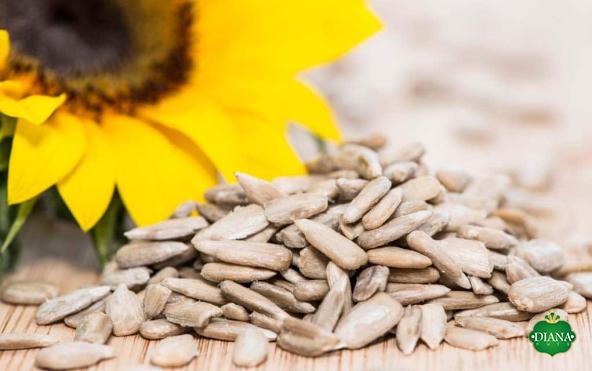 4. Storage Conditions: Sunflower seeds should be stored in a cool, dry place away from direct sunlight. Proper storage conditions help prevent the seeds from becoming rancid or spoiling prematurely. Temperature-controlled environments are ideal for preserving the quality of the seeds. 5. Shelf Life: Sunflower seeds have a relatively long shelf life, provided they are stored properly. It is essential to check the recommended shelf life provided by the supplier and monitor the freshness of the seeds regularly. Businesses should consider their storage capabilities and requirements when selecting packaging options and storage conditions. Ensuring proper packaging and storage practices will help maximize the shelf life and maintain the quality of sunflower seeds purchased in bulk. VI. Additional Considerations When Buying Sunflower Seeds in Bulk: There are a few additional factors that businesses should keep in mind when purchasing sunflower seeds in bulk. These considerations can help ensure a successful buying experience: 1. Quality Assurance: It is crucial to work with trusted suppliers who prioritize quality assurance. Ensure that potential suppliers have proper quality control measures in place, including certifications and adherence to food safety standards. 2. Sampling: Before committing to a bulk purchase, consider requesting samples from potential suppliers. Sampling allows businesses to evaluate the taste, texture, and quality of the sunflower seeds before making a larger investment. 3. Certifications and Compliance: Check if the supplier has relevant certifications, such as organic or fair-trade certifications, depending on your target market and sustainability goals. Compliance with food safety regulations is also essential to ensure the product meets legal requirements. 4. Payment and Delivery Terms: Discuss payment terms, delivery schedules, and shipping costs with potential suppliers. Understanding these aspects will help ensure a seamless transaction and avoid any surprises or delays. 5. Customer Support: Consider the level of customer support provided by the supplier. Prompt and reliable customer support can assist with order tracking, resolving issues, and maintaining a good business relationship. By taking these additional considerations into account, businesses can minimize risks, ensure product quality, and have a smooth procurement process when purchasing sunflower seeds in bulk. VII. Conclusion: Purchasing sunflower seeds in bulk can be a cost-effective option for businesses in the food industry. Understanding the pricing factors, specifications, and wholesale options enables businesses to make informed decisions and find the best quality and value for their requirements. By considering packaging and storage needs, ensuring quality assurance, and exploring sampling options, businesses can successfully procure sunflower seeds in bulk while meeting customer demands and maximizing profitability. With proper research, due diligence, and consideration of additional factors, businesses can establish long-term relationships with reliable suppliers, ensuring a steady supply of high-quality sunflower seeds.
4. Storage Conditions: Sunflower seeds should be stored in a cool, dry place away from direct sunlight. Proper storage conditions help prevent the seeds from becoming rancid or spoiling prematurely. Temperature-controlled environments are ideal for preserving the quality of the seeds. 5. Shelf Life: Sunflower seeds have a relatively long shelf life, provided they are stored properly. It is essential to check the recommended shelf life provided by the supplier and monitor the freshness of the seeds regularly. Businesses should consider their storage capabilities and requirements when selecting packaging options and storage conditions. Ensuring proper packaging and storage practices will help maximize the shelf life and maintain the quality of sunflower seeds purchased in bulk. VI. Additional Considerations When Buying Sunflower Seeds in Bulk: There are a few additional factors that businesses should keep in mind when purchasing sunflower seeds in bulk. These considerations can help ensure a successful buying experience: 1. Quality Assurance: It is crucial to work with trusted suppliers who prioritize quality assurance. Ensure that potential suppliers have proper quality control measures in place, including certifications and adherence to food safety standards. 2. Sampling: Before committing to a bulk purchase, consider requesting samples from potential suppliers. Sampling allows businesses to evaluate the taste, texture, and quality of the sunflower seeds before making a larger investment. 3. Certifications and Compliance: Check if the supplier has relevant certifications, such as organic or fair-trade certifications, depending on your target market and sustainability goals. Compliance with food safety regulations is also essential to ensure the product meets legal requirements. 4. Payment and Delivery Terms: Discuss payment terms, delivery schedules, and shipping costs with potential suppliers. Understanding these aspects will help ensure a seamless transaction and avoid any surprises or delays. 5. Customer Support: Consider the level of customer support provided by the supplier. Prompt and reliable customer support can assist with order tracking, resolving issues, and maintaining a good business relationship. By taking these additional considerations into account, businesses can minimize risks, ensure product quality, and have a smooth procurement process when purchasing sunflower seeds in bulk. VII. Conclusion: Purchasing sunflower seeds in bulk can be a cost-effective option for businesses in the food industry. Understanding the pricing factors, specifications, and wholesale options enables businesses to make informed decisions and find the best quality and value for their requirements. By considering packaging and storage needs, ensuring quality assurance, and exploring sampling options, businesses can successfully procure sunflower seeds in bulk while meeting customer demands and maximizing profitability. With proper research, due diligence, and consideration of additional factors, businesses can establish long-term relationships with reliable suppliers, ensuring a steady supply of high-quality sunflower seeds.

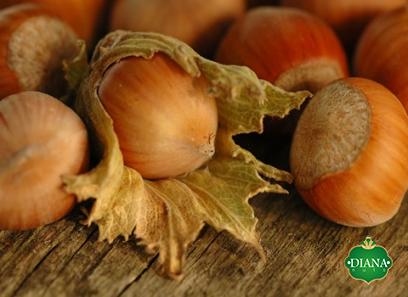
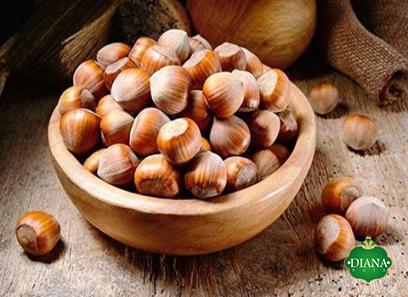
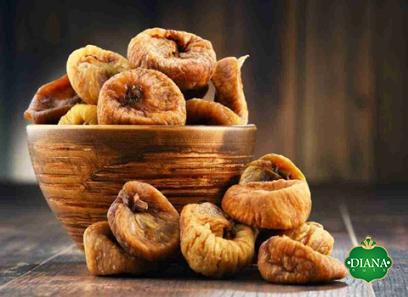
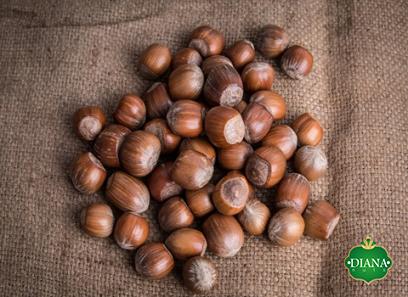
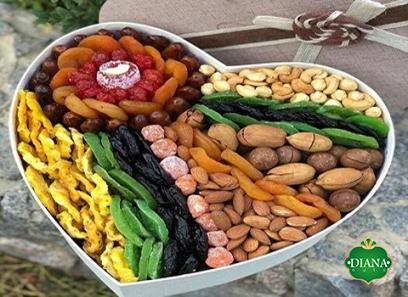
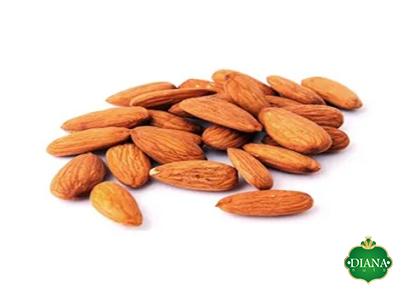
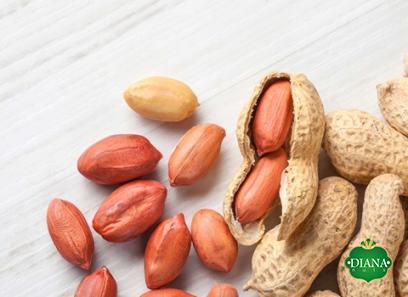
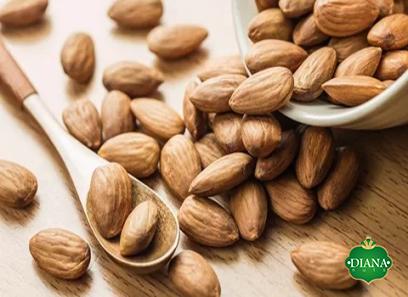
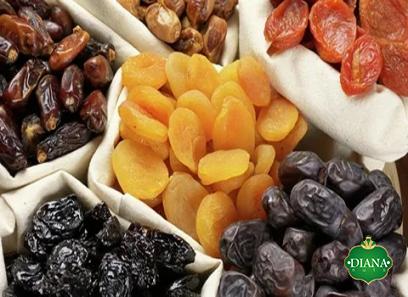
Your comment submitted.